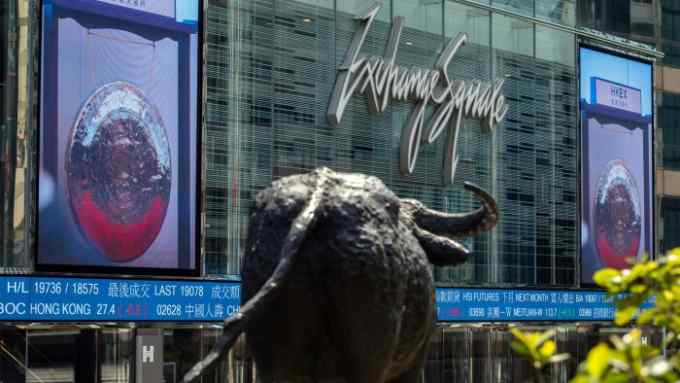State Street and Invesco eye listing of Japan active ETFs

Simply sign up to the Exchange traded funds myFT Digest -- delivered directly to your inbox.
Latest news on ETFs
Visit our ETF Hub to find out more and to explore our in-depth data and comparison tools
Several global asset managers are considering listing active exchange traded funds in Japan as the country’s main bourse gears up to allow such vehicles, industry participants say.
The Tokyo Stock Exchange plans to release in March or April final guidelines, which will require daily disclosures for active ETFs, and begin listings in June.
Global asset managers as well as Japanese fund firms have expressed initial interest in the new product and are waiting for the exchange to finalise rules.
Invesco has no ETFs listed in Japan at present, but Alex Sato, Japan president and chief executive of Invesco, said the products could help the firm grow its retail business in the country.

This article was previously published by Ignites Asia, a title owned by the FT Group.
“We want to make sure that we’re not going to be late to the game,” he said.
Just five global managers have established ETF businesses in Japan: BlackRock, State Street Global Advisors, UBS Asset Management, Global X Japan and Samsung Asset Management.
Meaghan Victor, Sydney-based head of SPDR ETF for Asia Pacific at State Street Global Advisors, said she would watch how Japan’s active ETF market developed.
She said that listing an active ETF would be an extension of the active funds SSGA already offers in the country.
State Street has two ETFs listed on the Tokyo Stock Exchange: the SPDR S&P 500 ETF Trust and ABF Pan Asia Bond Index Fund.
It also has two active ETFs domiciled in the US that are available to Japanese investors — the SPDR Blackstone Senior Loan ETF and SPDR DoubleLine Total Return Tactical ETF.
BlackRock is also among the global firms also believed to be looking into the benefits of Japan-listed active ETFs.
BlackRock is the biggest global ETF manager in Japan, with nearly 30 listed funds.
The firm’s iShares business in Japan also stands to benefit from the Bank of Japan’s ETF buying policy revised in October.
BlackRock did not return a request for comment.
Atsuo Urakabe, a researcher at the Nomura Research Institute who focuses on Japan’s asset management industry, said global managers might see active ETFs as a new opportunity to grow their business in Japan.
Globally, active ETFs are proving popular with investors. The products recorded net inflows of $122.64bn last year, bringing total assets to $488bn, up nearly 11 per cent from $441bn in December 2021, according to ETFGI.
But market participants have expressed scepticism that active ETFs in Japan would instantly attract retail investors as the ETF market is less mature than those in other developed markets.
Invesco’s Sato acknowledges that the overall appetite for ETFs has been slow in Japan compared with the rest of the world.
Although retail and foreign investor participation in Japan’s ETF space has increased in the past decade, the Bank of Japan is still the dominant player with 63 per cent of fund assets as of July last year, according to data provider ETFGI.
There were about 280 ETFs on the Tokyo Stock Exchange with $466bn in combined assets as of early August, according to Morningstar data.
Nomura Research Institute’s Urakabe said he was sceptical of the business opportunity involving active ETFs.
“I do not believe that the conditions are right for retail investors to use active ETFs for long-term asset building in Japan, partly because distributions, or dividends, from Japan-domiciled ETFs cannot be automatically reinvested,” he said.
*Ignites Asia is a news service published by FT Specialist for professionals working in the asset management industry. Trials and subscriptions are available at ignitesasia.com.

Click here to visit the ETF Hub

Comments